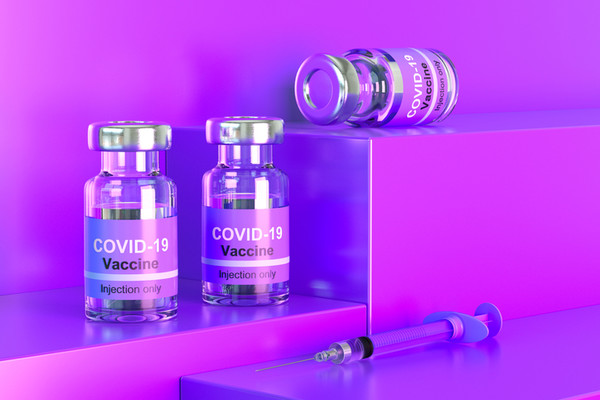The imbalance between the supply and demand of the Covid-19 vaccine was the most important factor that led to the fourth viral wave of the novel coronavirus in Korea, a survey said Friday quoting doctors.

InterMD, an online site for sharing information among medical doctors, released the results of its survey on 1,000 doctors early this week about the fourth viral wave of the Covid-19 virus and vaccination. Respondents were allowed to give multiple replies to the question.
In the survey, 28.4 percent of respondents said that the reason for the outbreak of the fourth viral wave was the imbalance between the supply of and demand for vaccines. Following it was the relaxation of quarantine rules despite the emergence of the Delta variant (28.4 percent) and social atmosphere anticipating the end of the Covid-19 outbreak (19 percent).
Doctors also cited the limitation of social distancing reform plans (11.3 percent) and inadequate compliance with personal quarantine rules (8.7 percent) as factors that led to the advent of the fourth viral wave.
Regarding efforts necessary to stop the fourth Covid-19 pandemic, they said that securing an additional supply of vaccines and expanding vaccinations (35.2 percent) is the most important factor,
Besides, doctors also noted accelerating the development of therapeutics (23.8 percent), expanding promotion of personal quarantine rules (16.7 percent), verification and promotion of vaccine safety (11 percent), and strengthening and strict application of social distancing (9.2 percent) were other key factors in stopping the fourth viral wave.
For difficulties in clinical practice when receiving the Covid-19 vaccine, 29.5 percent of doctors answered the absolute vaccine supply shortage.
Other difficulties included people's confusion and anxiety due to nondisclosure of vaccine supply-related information (20.2 percent), people's excessive concern about adverse reactions after vaccination (15.5 percent), lack of national compensation for adverse reactions after vaccination (13.7 percent), and lack of guidance related to vaccination (12 percent).
When asked about their experience of seeing patients with adverse reactions after receiving the Covid-19 vaccine, 78 percent of doctors answered "yes."
As the main symptoms of adverse reactions, muscle pain was most common (33. percent), followed by a fever of 38 degrees or higher (24.1 percent), skin allergy (16.6 percent), dizziness (7.4 percent), nausea, and vomiting (6.2 percent), and chest pain (5.8 percent).
However, 43.3 percent of doctors responded that this adverse reaction was "at a similar level" compared to other vaccination adverse reactions. In comparison, 39.2 and 3.9 percent of doctors answered that the negative response was serious or very serious.
Only 13.4 percent of doctors answered that the adverse reaction was very mild (6.4 percent) or mild (7 percent) compared to other vaccines.
Regarding the need for booster shots, 62.7 percent answered that it is necessary, while 25.1 and 11.4 percent said that it is needed only for the elderly or it is not required at all.

